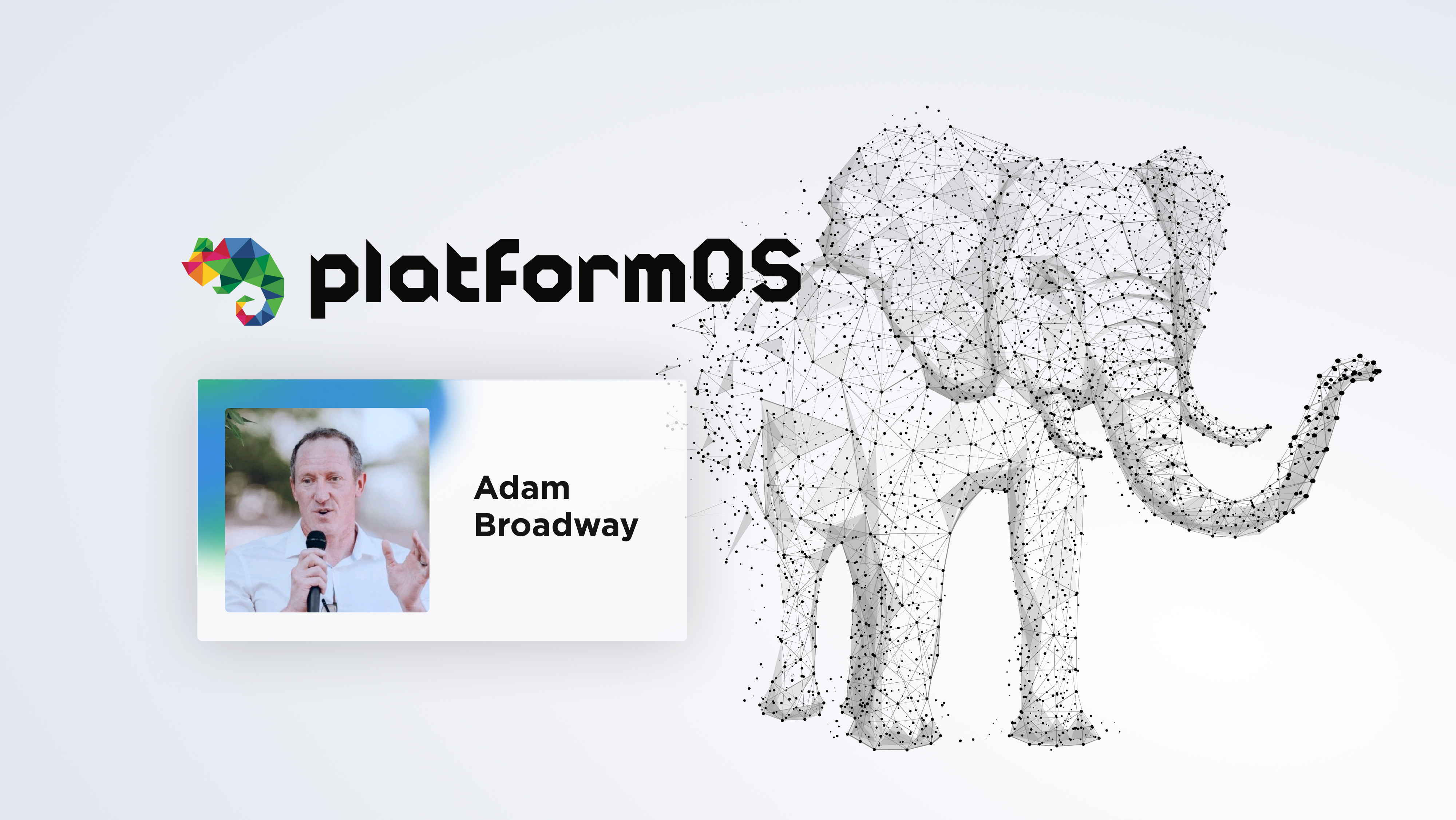platformOS - Our History
Adam Broadway | September 10, 2018

platformOS Vision
Build limitless applications with automated DevOps.
platformOS Mission
Equipping developers and agencies to rapidly produce and run enterprise-quality applications.
platformOS was founded in 2014 by Adam Broadway in San Francisco.
After selling my last tech company, Business Catalyst, to Adobe Systems in 2009 I moved from Australia to San Francisco, USA. Surrounded by truly breathtaking tech talent who relentlessly pursue innovation. A melting pot of diverse, intelligent entrepreneurs pushing the limits on how we engage with the world, sharing ideas, problem-solving, disrupting and executing on these ideas to create real products, services, and ecosystems - made Silicon Valley one of the tech hubs of the modern world.
However, for every successful startup company there are around 9 that fail.
I’ve seen too many great ideas failing to gain sustainable traction and great people failing to bring their ideas to market. The heartbreaking emotional, physical, and financial impact that these failures have is heartbreaking, not to mention the loss to society that just one of these failures might have had, if they’d been able to ‘cross the chasm’ into “success” (however their measure of “success” might be defined).
Common problems I hear from many failed start-up founders and teams are issues with:
Time to market
User Experience
Performance
Reliability
Scalability
Anyone of the above when done wrong had a devastating impact on their Customer Experience (CX), often causing their demise, when in all other respects their business models and core business team were solid.
When it comes to the technical creation of an innovative or ground-breaking business solution, many application developers just don’t possess the skills to deal with devops tooling and the developer experience tightly coupled with a rigorous User Experience Design team, and there was an enormous learning curve to becoming proficient, while it also removed their time and expertise from building their application.
Start-ups that were able to secure seed capital went on to spend an enormous percentage of their funding trying to get their devops and technical solution right, and still had lackluster results, technical debt, shiny-object-syndrome by their developers, to the point of running out of capital before even getting to user acquisition.
Similarly, Enterprise companies, who have wanted to innovate and begin working on horizon 2 and 3 of their business longevities, would also burn through vast amounts of discretionary budgets, with little or no ROI on those ‘long-term-growth’ bets.
Our goal was to build a flexible platform that didn’t limit the creativity of people’s ideas and had the reliability, performance, security, and scalability of enterprise-grade devops, right out of the box.
This vision is reflected in our branding, where the chameleon / elephant logo symbolize what platformOS stands for. The chameleon represents adaptability, precision, and seamless integration — qualities that define our modular architecture, allowing businesses to scale and evolve effortlessly. The elephant is hidden within the chameleon’s form, symbolizing stability, strength, and reliability — the foundation on which we built platformOS. The polygonal design of the logo further emphasizes our modular approach, where individual components come together to create powerful, customized applications. Our brand embodies the technology we develop and the principles we uphold: agility, resilience, and innovation.
This was the birth of platformOS
To test the flexibility of the framework, we decided to focus first on some of the most complex types of business models, and so product and services marketplaces became the first challenge platformOS would solve. Not just due to the various technical challenges that a Many-to-Many business model introduces, the technological requirements or the architecture of the technology, but most importantly the customer experience overall.
We wanted to understand how you bought sellers together with buyers, multi-payment payouts, cancellation and fees, complex shipping, who answers the phone, how do you follow up, how does insurance work, what about digital products and services provided over video and taking on the entire end to end process of how to build a marketplace business and not just the technology.
This led to the creation of desksnear.me, a premier marketplace for global workspaces from New York to London, Istanbul to Shanghai, Sydney to San Francisco, and helping professionals find workspaces that fit with their needs anywhere in the world.
DesksNear.Me enjoys top ranking in Google Organic Search results for every keyword combination that it aims for. These learnings have also fed into the SEO superiority of the platformOS solution.
Interested in knowing more about partnering with platformOS?
Ensure your project’s success with the power of platformOS.